Medical expert of the article
New publications
Teas and herbs during breastfeeding: which can be drunk and which are prohibited
Last reviewed: 04.07.2025

All iLive content is medically reviewed or fact checked to ensure as much factual accuracy as possible.
We have strict sourcing guidelines and only link to reputable media sites, academic research institutions and, whenever possible, medically peer reviewed studies. Note that the numbers in parentheses ([1], [2], etc.) are clickable links to these studies.
If you feel that any of our content is inaccurate, out-of-date, or otherwise questionable, please select it and press Ctrl + Enter.
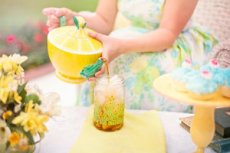
During the period of breastfeeding, women are forced to limit themselves not only in food, but also in drinks. Carbonated water, some juices and alcohol are strictly prohibited. You should also be careful when drinking teas and herbs during breastfeeding. There are a number of plants that are allowed because they have a beneficial effect on the female body.
Many people wonder whether a nursing mother can drink herbal teas. It is impossible to name a completely safe plant. Any herb can provoke an allergic reaction in a child or mother. Moderate consumption will help to avoid unpleasant consequences. It is also recommended to consult a specialist before starting to take it.
Can nursing mothers drink rose hips?
Folk remedies are much safer than medications when breastfeeding. During this period, it is recommended to drink rosehip decoctions and teas. The plant contains a large amount of citric and malic acid, vitamins, carotene, and microelements that help strengthen the immune system of the mother and baby.
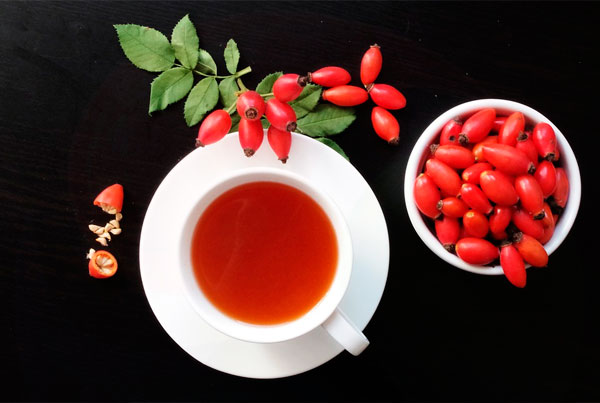
Quite an important question is whether a nursing mother can drink rosehip infusion. It is even necessary, since daily use of the decoction increases lactation, regulates hormonal balance. Despite the impressive list of benefits, the plant is considered a fairly strong allergen. Therefore, if the child has an allergy in the form of rashes or intestinal upset, you should stop taking it.
In order for rosehip decoctions to bring only benefits, you need to learn how to prepare them correctly:
- You should avoid boiling. This method of cooking kills a large number of useful substances;
- to brew tea, it is better to take a large thermos;
- Nursing mothers should use only proven berries that they themselves have collected. It is difficult to talk about the benefits of pharmacy rose hips;
- 4 tbsp. rose hips are poured with 1 liter of water. It should be infused for about 10-12 hours;
- If desired, you can add a small amount of sugar.
Can a nursing mother drink rosehip decoction? A decoction from the plant root contains many useful substances and is not such a strong allergen. The roots should be washed, dried and crushed. About 1 tablespoon of roots is used per 1 glass of water. The decoction should be boiled for about 20 minutes and filtered.
The daily dose at the initial stage is approximately 100 ml. During this period, it is necessary to monitor the child's body reaction. If there are no allergic reactions, the dose can be gradually increased to a liter of drink per day.
Can a nursing mother drink chamomile?
Chamomile infusions and decoctions help to get rid of digestive disorders and significantly improve the well-being of a nursing mother and child. The plant also prevents the development of various diseases:
- colds. Since chamomile has antiseptic properties, it helps in the fight against cough, pharyngitis, sore throat. This is very important, because the list of medications that can be taken during breastfeeding is very small;
- dermatological problems. During this period, cracks and sores may appear on the nipples of nursing mothers, which cause discomfort. Chamomile decoction helps prevent their formation and healing;
- insomnia and increased nervous excitability. Chamomile tea will return mother to a calm, deep sleep, will help the baby to relax during the period of teething;
- colic and diarrhea. The plant removes unpleasant symptoms not only for the mother, but also for the baby.
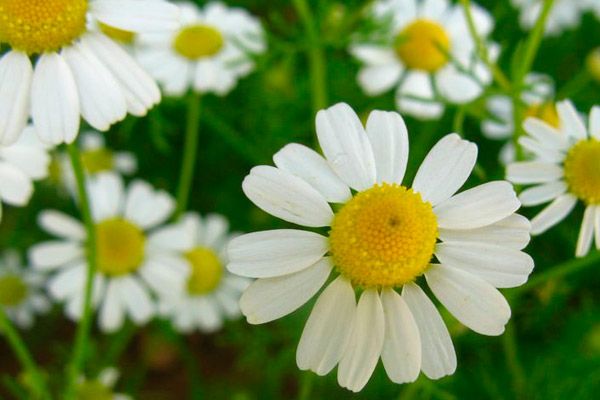
To avoid allergies, it is necessary to start taking a small amount, after consulting a doctor. Chamomile should be taken with caution if the mother has a small amount of milk (once a day if urgently needed).
The plant can be collected and dried independently or purchased in a pharmacy in a packaged chamomile. Before using the decoction, it should be carefully filtered. It is better to prepare a new portion each time. If this is not possible, the finished tea should be stored in a thermos.
Can a nursing mother drink mint?
To date, experts have not come to a unified decision. Most argue that it is better to forget about mint tea during breastfeeding. The fact is that it helps stop milk secretion. Therefore, it is taken in order to completely stop lactation.

However, there is an opinion that mint, on the contrary, helps to increase the amount of milk. Here we should not forget that there is curly mint and peppermint. They have different effects on the body.
Moderate consumption of the plant promotes:
- destruction of harmful microbes and bacteria;
- improving the condition of the nervous system;
- preventing the occurrence of migraines;
- normalization of the gastrointestinal tract.
The safest option is considered to be curly mint, and the carvone it contains improves lactation. The main thing to remember is that any herbal teas should be consumed in moderation. Then they will strengthen the body and not have a negative effect on it.
Can a nursing mother drink Ivan tea?
It is known that during the period of breastfeeding, mothers are advised to drink more liquid, as this improves lactation. In order for milk to be saturated with useful substances, herbal teas and decoctions should be included in the diet. Particular attention can be paid to Ivan tea. The plant is unique in its composition. It contains vitamin C, iron, amino acids, tannin, carotene. Daily use removes toxins from the body and improves metabolism.
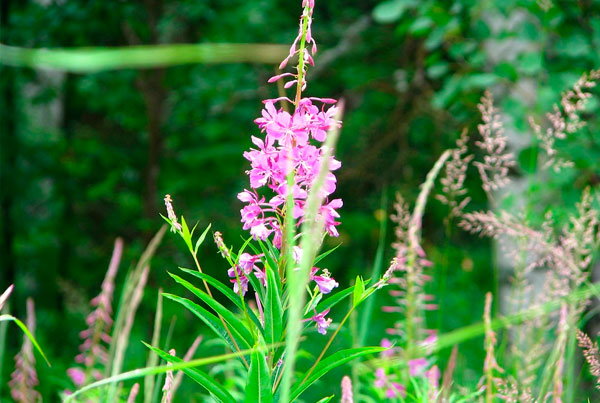
To prepare the drink, you will need a teaspoon of dried plant per glass of boiling water. It is infused for 20-25 minutes. Such an infusion will not only improve lactation, but also relieve the baby from colic.
Experts recommend collecting and drying the plant yourself. But this is not always possible. Therefore, you can buy Ivan tea at a pharmacy.
To avoid side effects, you should start taking the decoction or infusion with small portions and carefully monitor the changes in your body and the child's reaction. If an allergy occurs or intestinal disorders are observed, it is better to refuse to use it.
It is also not recommended to add sugar to the drink. If the child tolerates honey well, you can sweeten the tea with it. It is necessary to ensure that the decoction is not too strong, as it can provoke drowsiness. It is advisable to drink no more than 700 milliliters of the drink per day.
Can a nursing mother drink motherwort?
Indications for the use of motherwort during breastfeeding:
- Insomnia and irritability. These problems often haunt women after childbirth. Frequent lack of sleep leads to disturbances in the functioning of the nervous system and negatively affects the mood and well-being of the nursing mother. Motherwort improves mood, normalizes sleep and gives vigor;
- High blood pressure;
- Tachycardia;
- Lactation failures due to nervous tension.
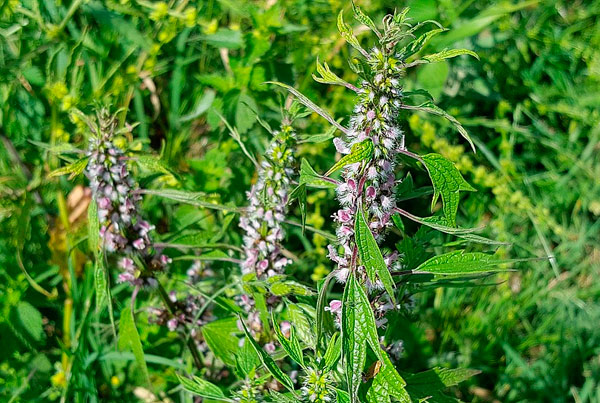
Motherwort is available as a tincture. However, it is not recommended for nursing mothers, as it contains a large amount of alcohol. The most suitable option is tea bags.
Preparing the drink does not take much time. It is enough to pour boiling water over it. It is recommended to drink two cups of motherwort tea per day, in the morning and in the evening.
Can a nursing mother drink thyme?
Thyme is considered one of the most useful and accessible plants. Due to the fact that it does not contain aggressive chemical compounds and substances, it is practically safe for newborns. The only contraindication is individual intolerance.
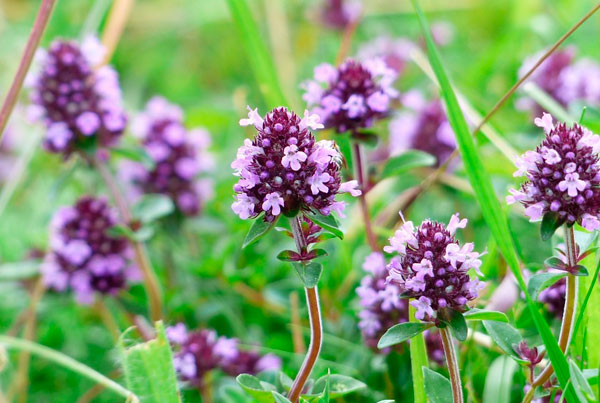
Thyme is rich in useful acids: oleanolic, coffee, quinic, ursolic. It also contains many essential oils. The decoction helps fight viral and bacterial infections, fight excess gas formation, both in mother and baby, relieves spasms.
Since the plant contains thymol, it has antibacterial properties. If a nursing mother has problems with lactation, she should drink tea with thyme. It enhances the process of milk production.
To prepare the drink, you will need two spoons of plain tea (black) and a teaspoon of the herb. The mixture must be poured with 350 ml of boiled hot water. The tea is infused for about half an hour.
The infusion is prepared from 0.5 l of boiling water and 2.5 teaspoons of the steeped plant. It is better to use a thermos or ceramic dish for infusion. After 2-30 minutes, the drink can be strained and taken.
Can a nursing mother drink linden or linden tea?
According to experts, linden tea helps increase the amount of breast milk. To prepare it, it is better to buy dry leaves at a pharmacy. Before going on sale, the raw materials undergo special cleaning. Linden is a tree that grows near the road, so its leaves absorb a large amount of exhaust gases and dust. It is better not to harvest them yourself.
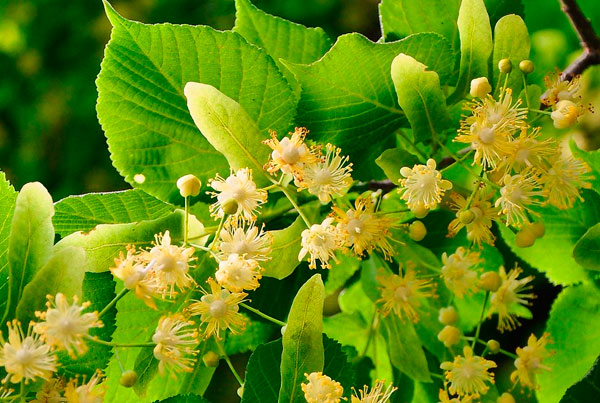
In addition to its positive effect on milk production, linden helps fight colds. It should be brewed in a ceramic cup. For one serving, you will need 200 ml of boiling water and 1 teaspoon of dry leaves. Cover the dish with a lid and leave for 15-20 minutes. It is recommended to drink no more than three cups of linden tea per day.
Linden does not contain any substances that can cause allergies. Therefore, the plant is safe for infants.
Can nursing mothers drink lemon balm?
Due to its effect on the body, lemon balm is considered a "female" plant. It normalizes the menstrual cycle and hormonal background, helps get rid of insomnia and normalizes the nervous system. Consuming the herb during breastfeeding helps produce sufficient amounts of mother's milk.

The fragrant herb contains a large number of vital substances that are useful for the body of the baby and mother. Many women face postpartum depression. Daily intake of lemon balm tea will help relieve anxiety and irritability.
To prepare a drink to improve lactation, use dry lemon balm leaves. The water temperature should not exceed 90 °. Take one tablespoon of the herb per glass of water. Drink warm tea an hour after eating, preferably not too hot. The recommended daily dose is 1 cup. You can also add ginger, rose hips or lemon to the drink.
Despite the large number of useful properties, lemon balm drink should be taken in stages. You need to start with a small portion. If the child has not developed an allergy, you can gradually increase the portion to one cup.
Can a nursing mother drink oats?
Traditional medicine has confidently entered the lives of modern people. In most cases, they are much safer than medical drugs and surprise with their effectiveness. This also applies to the well-known oats.
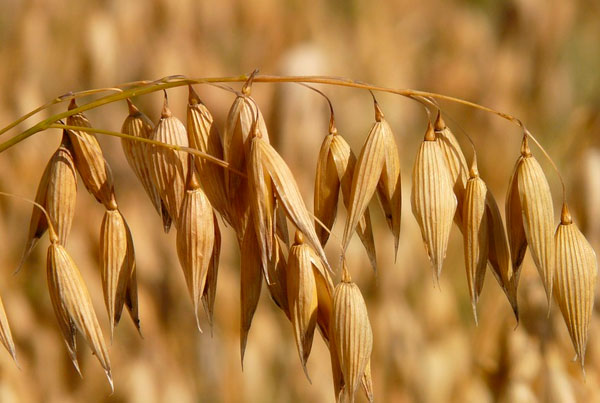
During breastfeeding, many recommend drinking oat broth. The plant is rich in useful vitamins and microelements that have a positive effect on the body of the mother and baby.
The decoction is prepared in milk (for 1 liter - a glass of oats). You can add butter or a little honey to the drink. It is recommended to drink one glass per day, dividing it into several doses. To improve lactation, use oat milk.
A drink made from oat grains has a positive effect on the baby's fragile body. It:
- strengthens protective functions;
- normalizes the functioning of the gastrointestinal tract;
- helps to get rid of diathesis;
- indispensable in the fight against bronchitis.
Despite the mass of positive properties, the plant has a number of contraindications. It is worth giving up the oat drink if you have low blood pressure, renal or cardiovascular insufficiency, high acidity or hypersensitivity.
Can a nursing mother drink oregano?
Oregano has proven itself as a highly effective means for the prevention and treatment of various diseases. During breastfeeding, use it to improve lactation. The plant also helps to get rid of severe pain during menstruation, helps to normalize the cycle.
If a woman faces the problem of insufficient milk, she should pay attention to her daily diet and supplement it with products that improve lactation. In order for the baby to develop correctly and his body to be able to resist various viruses, he needs mother's milk.
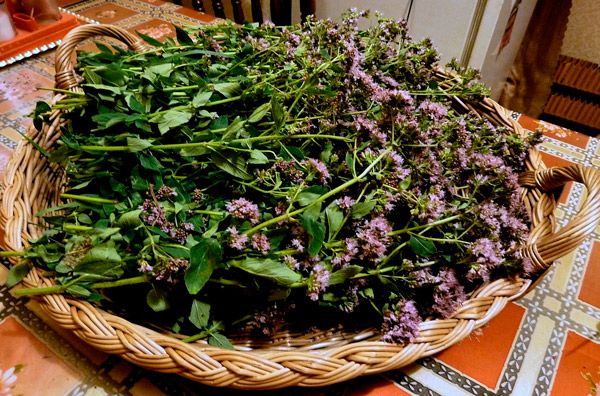
Oregano tea will help to cope with the problem. It should be taken until lactation is established.
To prepare the drink, pour 1 teaspoon of dry oregano with a glass of boiling water and leave for 15-20 minutes. Then strain the infusion. It should be taken 30-40 minutes before feeding the child, no more than twice a day.
Before you start drinking oregano tea, it is better to consult a doctor. Since the plant can cause an allergic reaction in a baby.
Can a nursing mother drink millet broth?
Millet amazes with its rich chemical composition. It improves brain function, frees the body from toxins, excess fluid and waste. In addition, the cereal is considered hypoallergenic, it does not cause allergic reactions.
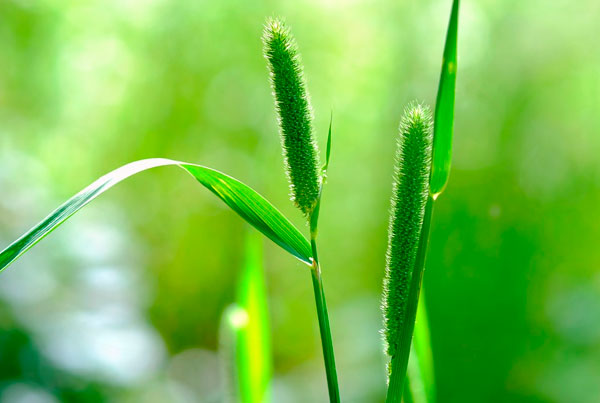
There are many recipes from millet that promote weight loss, cleanse the kidneys of stones and sand, help cure cystitis and other pathologies of the genitourinary system.
During breastfeeding, millet decoction is used to improve milk production. In addition, millet prevents aging and normalizes blood pressure.
To prepare the decoction, you should use only fresh cereals. They are distinguished by their bright yellow color.
Can a nursing mother drink green tea?
This question worries many new mothers. Since they are especially responsible about their nutrition, they need to carefully select drinks that will not harm the newborn baby.
High-quality tea is a good antioxidant, tones and normalizes metabolism. In addition, it helps mom return the body to its previous form. To do this, it is enough to drink two or three cups of weak tea per day.
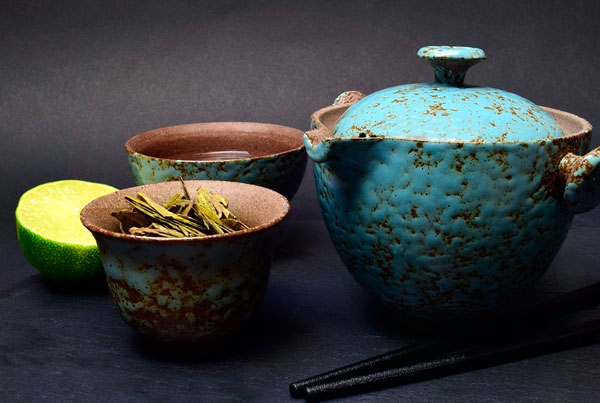
Excessive consumption may disrupt the child's sleep. It is necessary to monitor in the first days. If no changes have appeared, you can continue drinking green tea.
Some mothers are sure that tea with milk improves lactation. In fact, there is no scientific evidence to date.
Can a nursing mother drink black tea?
There are several misconceptions about black tea. First of all, it is worth understanding that only a small amount of what the mother drinks or eats gets into the baby's body through milk. Therefore, it is impossible to say with 100% certainty that black tea is strictly prohibited.
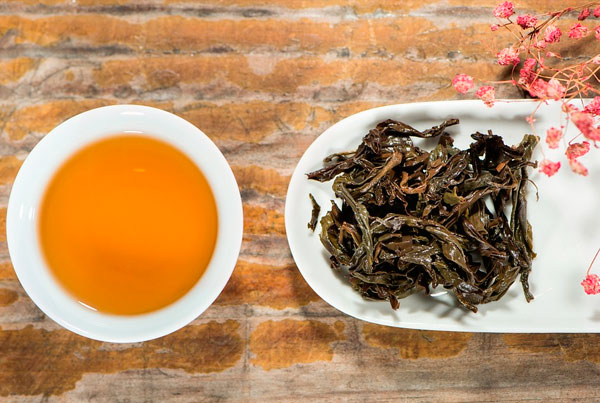
The idea of combining tea and milk is also wrong. Such a mixture does not affect the process of breast milk production. If the mother loves tea, and the baby does not have a reaction in the form of insomnia, irritability or digestive disorders, she can safely continue to drink her favorite drink.
During the feeding period, it is not necessary to refuse healthy herbal teas and decoctions. It is enough to introduce them gradually in small portions and carefully monitor the reaction of your baby's body.
Herbs that are prohibited to use during breastfeeding
Among the useful plants there are those that have a negative impact on the development and health of the baby. It is better to forget about them during breastfeeding. Drinking teas and decoctions prepared on the basis of these plants can lead to irreparable consequences.
Can a nursing mother drink St. John's wort?
St. John's wort consists of biologically active substances, essential oils, vitamins, and ascorbic acid. The plant has a beneficial effect on the body. It helps to cope with various infectious diseases, insomnia, and arthritis. In addition, St. John's wort decoctions improve mood, fight depression and insomnia.
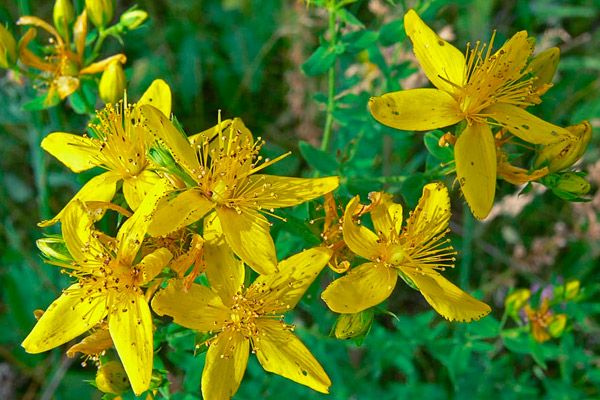
However, the drink also has a number of contraindications. Including pregnancy and breastfeeding. In addition to useful substances, the plant also contains toxic ones. With mother's milk, they can penetrate the baby's fragile body and cause problems with the digestive or respiratory system. Also, taking St. John's wort decoction can provoke intellectual development disorders.
It is worth noting that the plant has a specific bitter taste, which means that it changes the taste of mother's milk. As a result, the baby may completely refuse the breast.
During breastfeeding, the plant can be used exclusively for external use.
Can a nursing mother drink shepherd's purse?
For a long time people have known that shepherd's purse has a strong vasodilating, anti-inflammatory, hemostatic, diuretic and healing effect.
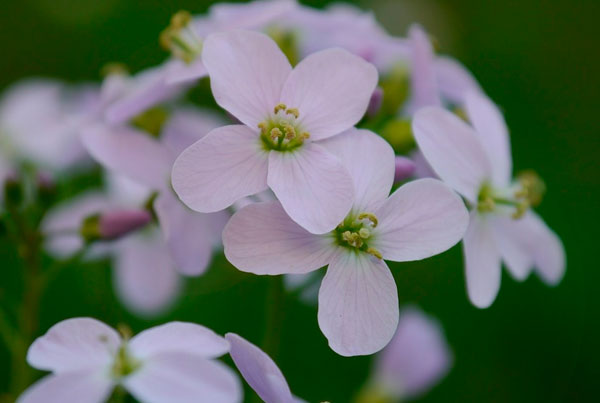
If there is a need to resort to treatment with shepherd's purse, lactation should be stopped. Decoctions based on this plant affect the intellectual and physical development of the child.
Can a nursing mother drink elecampane?
In folk medicine, the plant is used to treat diseases of the genitourinary, respiratory and digestive systems. Elecampane contains useful substances that cope with various pathologies. At the same time, they are a direct threat to infants.
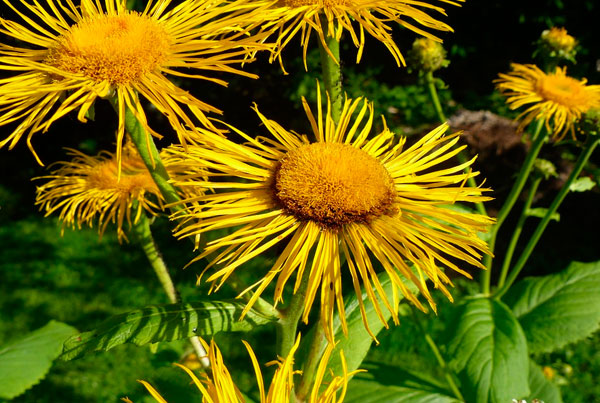
The plant components can have a negative effect on lactation. They provoke the cessation of breast milk production and can affect its taste. Is it possible to take decoctions and teas of elecampane if necessary to abruptly stop breastfeeding? But only after consulting a doctor.
The substances contained in the plant can affect the baby’s body and cause a number of problems.


 [
[